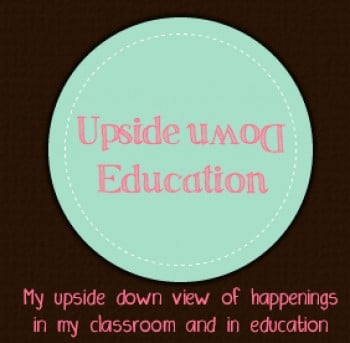Lately I have had 3 or 4 different conversations with different people about teachers using technology. The conversations were either about the teachers barely using it or about teachers using it not the kids. I am one that will complain about this same issue. But after I did that I starting think there is much more than teachers are just not using not using technology.
Let’s look at it this way, if someone handed me a rugby ball, first thing I would do is look for the laces before I throw it. There are no laces so would probably toss it up in a spiral and catch it. After a few minutes I would get bored with it and move on to something else. Now if that person that handed me the ball said, ok now you have a ball come join our rugby team I would probably hand it back and walk away. If I was taught how to throw the ball, I may be more adventurous, and think, ok this looks like a football, I know how to play that and now know how to use the ball and jump in the game. I did that, I would not play the game correctly and do the team no good.
Now what if I was handed a rugby ball and once a week someone came help me throw the ball, tackle someone (well do that huddle thing they do), how to score, after a few months I would know what I was doing and could probably be somewhat successful. (OK not really, those that do not know me, I am a 5’2″ chick that is more cheerleader than ball player.)
We so often hand teachers projectors and computers, they have used them before, they use them all the time to Facebook, they will be successful, right? Isn’t that just like handing a football fan a rugby ball and assuming they know what to do it with? They know how to throw a football right? Using a computer for Facebook and email is a lot different than using it to teach kids!
How about giving them a IWB and a short class on how to turn it on, use the basic settings, and use the software make the slides. Or any technology device, often we give it to the teacher, show them the basics and assume the rest will come. That is the same as not only giving someone the rugby ball but teaching them how to throw it. Sure they can throw it to someone but they have no concept of how to play the game. Think of all the training that goes into teaching strategies or teaching content, a lot, and a technology (how scary it can be to so many) does not always have that training.
If teachers are given technology they not only need to be told how to use it they need to be coached and know how to use properly. There is a HUGE difference between technology use and technology integration. Technology use is just using technology in the classroom, it doesn’t change the way students learn, doesn’t change pedagogy, and it usually is just used by the teacher. It is like knowing how to throw the rugby ball but not knowing how to play the game. When technology is integrated into the classroom it is not only seamless, it is used by teacher and student. It is also used for more than projecting a PowerPoint, but to increase everyday learning and inquiry.
We need to make sure we do not just throw teachers a ball and expect them to win championships.
